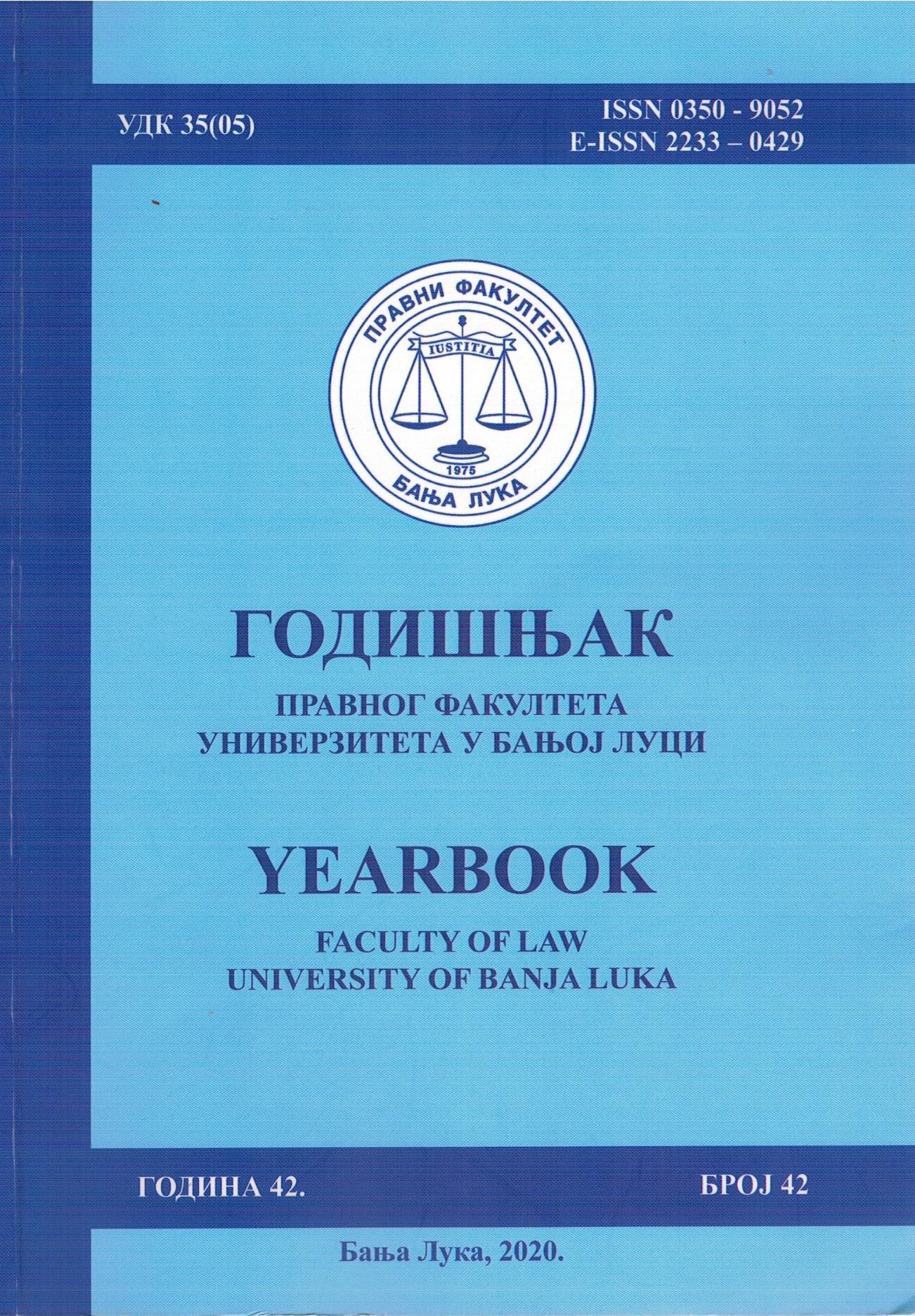TERMINATION OF EXECUTIVE PROCEEDINGS
Abstract
The termination of the enforcement procedure occurs against the will of the parties in the enforcement procedure. Termination of the procedure leads to the suspension of executive activity. Subjects of enforcement proceedings, as a rule, cannot undertake any actions in the proceedings during the interruption. Interruption of the procedure leads to a delay in enforcement activity, and its continuation in certain cases is questionable. In order to solve this crisis situation, the legislator created the rules on the temporary representative whom the parties can appoint, in precisely specified cases, after the decision on the termination of the proceedings has been passed. The purpose of appointing a temporary representative is to continue and complete the started enforcement procedure.
The paper analyzes the termination of the enforcement procedure, which is only partially regulated in the Law on Enforcement Procedure. Incomplete regulation with regard to this procedural institution results in different actions of the courts. Uneven judicial practice in enforcement proceedings is particularly noticeable when appointing a temporary representative to the heirs of a party who died after the initiation of enforcement proceedings.
The paper deals with the analysis of the suspension of the executive procedure with a special focus on the temporary representative and the question of whether he can continue with the representation, after the adoption of the decision on inheritance, or the party on whose behalf he is appointed must take over the procedure. It is not unknown in judicial practice that the party who has acquired the status of a claimant or executor must "take over" the proceedings because the rules governing succession in enforcement proceedings overlook this, if he wants the proceedings to continue.

This work is licensed under a Creative Commons Attribution-NonCommercial-NoDerivatives 4.0 International License.



